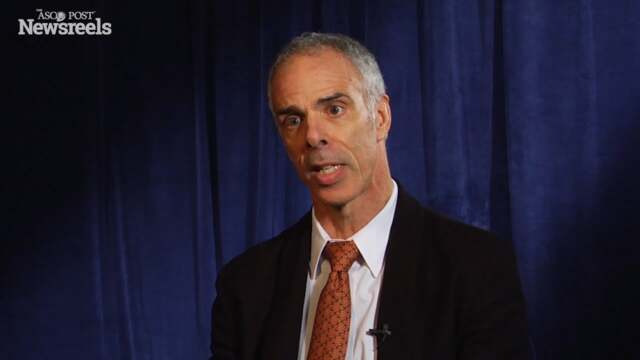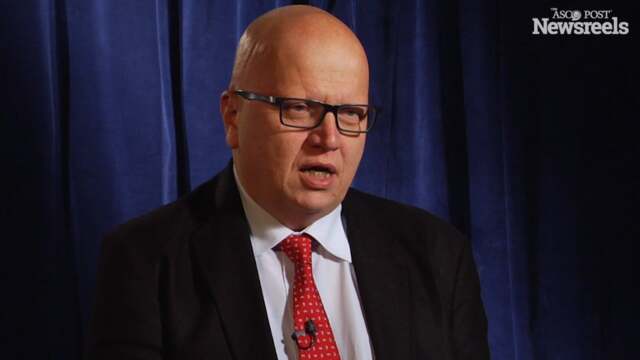Brian D. Kavanagh, MD, on Improving Value and Elevating the Patient Care Experience
2015 ASTRO Annual Meeting
Brian D. Kavanagh, MD, of the University of Colorado School of Medicine, summarizes three papers: outcomes for locally advanced non–small cell lung cancer, 3D CRT vs image-guided intensity-modulated radiotherapy for reducing bowel toxicity, and dexamethasone for controlling pain flares in patients with bone metastases (Abstracts 2, 8, LBA6663).
Howard M. Sandler, MD
Howard M. Sandler, MD, of Cedars-Sinai Medical Center, discusses how adding 24 months of daily antiandrogen therapy during and after radiotherapy was shown to significantly improve long-term overall survival following prostate cancer recurrence after a radical prostatectomy (Abstract LBA5).
Alysa M. Fairchild, MD
Alysa M. Fairchild, MD, of the Cross Cancer Institute and the University of Alberta, discusses her study on the use of dexamethasone to reduce pain flare in patients receiving palliative radiotherapy for bone metastases (Abstract LBA6663).
Leonard Gunderson, MD
Leonard Gunderson, MD, of the Mayo Clinic College of Medicine, discusses PET/CT imaging in upper and lower gastrointestinal cancers, which can be of value as a baseline study prior to treatment, in determining the degree of response to treatment, and in helping decide whether there is a relapse after a complete response to treatment.
Anthony Zietman, MD
Anthony Zietman, MD, of Massachusetts General Hospital, discusses his perspective on the study of bicalutamide during and after radiotherapy in patients following radical prostatectomy and a biochemical relapse (Abstract LBA5).
Vratislav Strnad, MD, PhD
Vratislav Strnad, MD, PhD, of the University Hospital in Erlangen, discusses results from a European study comparing accelerated partial-breast irradiation using brachytherapy, to the standard treatment of whole-breast irradiation for women with low-risk breast cancer (Abstract LBA7).





